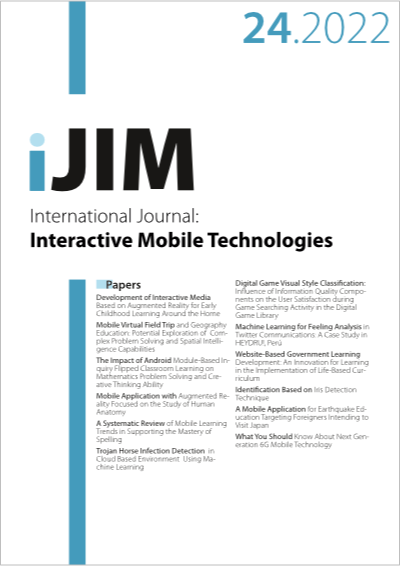Machine Learning for Feeling Analysis in Twitter Communications: A Case Study in HEYDRU!, Perú
DOI:
https://doi.org/10.3991/ijim.v16i24.35493Keywords:
algorithms, classification, CRISP-ML(Q), machine learning, SVM, analysis, feelingsAbstract
At present, sentiment analysis has become a trend; above all, in digital product development companies, as it is essential for rapid and automatic analysis. Sentiment analysis deals with emotions with the help of software, and it is playing an unavoidable role in workplaces. The constant growth of social networks, especially the Twitter social network, has made the ability to understand and comprehend users or clients take a greater scope regarding their needs; and therefore, increase the complexity of analysis of this social network, causing excessive expenses in time, personnel and money. This work presents a solution through the application of Machine Learning (ML) for sentiment analysis and thus improve analysis, execution time and customer satisfaction. The scope of this research is limited to using the Support Vector Machine (SVM) supervised learning technique for the intended analysis. The model derives from the ML technique making use of cross validation. The applied methodology is the CRISP-ML(Q) Methodology. The results show that the use of ML allows efficient sentiment analysis in Twitter communications.
Downloads
Published
How to Cite
Issue
Section
License
Copyright (c) 2022 Javier Gamboa-Cruzado, Alegre-Veliz, Pedro Gaspar-Ortiz, Liset Rodriguez Baca, Waldy Grandez Pizarro, Rosa Menéndez Mueras, Carlos Chávez Herrera

This work is licensed under a Creative Commons Attribution 4.0 International License.


